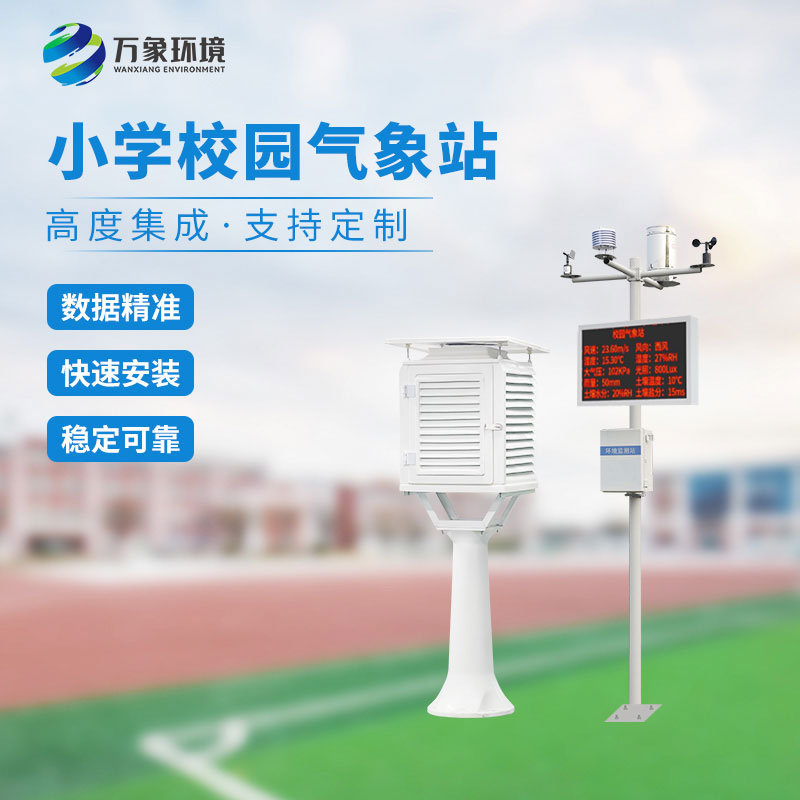Campus smart weather stations can be customized to meet different needs. Imagine waking up in the morning, you don't need to open multiple apps to compare the weather, just look up at the smart weather station in the corner of the campus, and you can get comprehensive information such as temperature, humidity, wind speed, and ultraviolet intensity at a glance. This not only makes the travel preparation more leisurely, but also greatly improves the convenience and comfort of campus life.
The WX-XQ2 campus intelligent weather station uses high-precision sensors for 24-hour uninterrupted monitoring to ensure real-time and accuracy of data. Whether it is scorching sun or drizzling, it can inform every teacher and student of weather changes in the first time, becoming the most reliable "weather forecaster" on campus.
Even more surprising is that the smart weather station can also provide customized services according to the different needs of teachers and students. For example, for sports fans, it can warn high temperature or rainstorm weather in advance to ensure sports safety; For students with allergies, it can especially remind the pollen concentration to help them do a good job of protection. In addition, combined with campus activities, the smart weather station can also provide suggestions on the best time for outdoor activities, so that every party and competition can go smoothly.
In advocating green and low-carbon today, the campus intelligent weather station also shows its environmental protection side. It uses solar power and does not require an external power supply, which reduces energy consumption and maintenance costs. At the same time, its simple and fashionable design appearance has also become a beautiful landscape on campus, contributing to the creation of a green and ecological campus environment.
Campus intelligent weather station is not only a practical tool for campus life, but also an important carrier to stimulate students' scientific interest and cultivate their spirit of exploration. Schools may organize students to participate in meteorological observation activities, learn meteorological knowledge through practical operations, and understand the scientific principles behind natural phenomena. This way of edutainment not only enriches the course content, but also allows students to increase their knowledge in practice and stimulate their love for science.

Article address:
http://www.qxhjjc.com/en/newcen/1228.html


















 Home
Home phone
phone Product Overview
Product Overview Contact Us
Contact Us